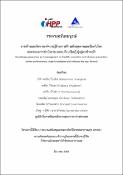บทคัดย่อ
การประชุมวิชาการระดับชาติด้านหลักประกันสุขภาพถ้วนหน้า พ.ศ. 2567 ได้จัดขึ้นระหว่างวันที่ 11-12 ธันวาคม พ.ศ. 2567 ภายใต้หัวข้อ “การสร้างเสริมสุขภาพและป้องกันโรค: กุญแจสู่ความสำเร็จของหลักประกันสุขภาพถ้วนหน้า” เพื่อเป็นการแลกเปลี่ยนเรียนรู้ทางวิชาการระหว่างหน่วยงานที่เกี่ยวข้อง ในการพัฒนานโยบายด้านหลักประกันสุขภาพถ้วนหน้าของไทย โครงการนี้จึงมีวัตถุประสงค์ในการผลิตองค์ความรู้ด้านการสร้างเสริมสุขภาพและป้องกันโรคของไทย เพื่อใช้เป็นเอกสารนำเข้าในการประชุมดังกล่าว รวมถึงรวบรวมความคิดเห็นและการระดมสมองจากผู้เข้าร่วมประชุม เพื่อนำมาใช้ในการพัฒนาข้อเสนอสำหรับการขับเคลื่อนการดำเนินงานด้านการสร้างเสริมสุขภาพและป้องกันโรค ภายใต้ระบบหลักประกันสุขภาพถ้วนหน้า การศึกษานี้ได้นำแนวคิดด้านหลักประกันสุขภาพถ้วนหน้าและกฎบัตรออตตาวามาใช้ในการออกแบบการศึกษาเชิงวิชาการ โดยมีประเด็นสำคัญ 4 ประเด็น ได้แก่ 1) ระบบนิเวศเพื่อป้องกันและควบคุมโรคไม่ติดต่อ ซึ่งเป็นการวิเคราะห์นโยบายและมาตรการที่เกี่ยวข้อง ความสำเร็จและความท้าทาย รวมถึงแนวทางการดำเนินงานในอนาคตเพื่อคุณภาพชีวิตที่ดีของประชาชนทุกคน 2) กองทุนสุขภาพตำบล เป็นการวิเคราะห์ผลการดำเนินการสร้างเสริมสุขภาพและป้องกันโรค โดยเฉพาะการจัดการด้านสุขภาพ การใช้ทรัพยากร และประสิทธิภาพในการดำเนินงานภายใต้กองทุนตำบล 3) การเพิ่มความสามารถให้ประชาชนในการดูแลสุขภาพ กรณีศึกษา โรคเบาหวานระยะสงบ เป็นการศึกษาความสำเร็จในการดูแลผู้ป่วยเบาหวานให้เข้าสู่โรคเบาหวานระยะสงบ และการเสริมสร้างศักยภาพของประชาชนในการดูแลตนเอง และ 4) การป้องกันภาวะเปราะบางในสังคมสูงวัย เป็นการวิเคราะห์ข้อมูลการคัดกรองและดูแลภาวะเปราะบางของผู้สูงอายุในชุมชน ความท้าทายในการค้นหาและดูแลผู้สูงอายุที่มีภาวะก่อนเปราะบางให้กลับมาเป็นกลุ่มที่มีสุขภาพแข็งแรง รวมถึงการดูแลกลุ่มที่มีภาวะเปราะบางให้กลับมาเป็นกลุ่มที่มีภาวะก่อนเปราะบาง ข้อเสนอแนะเชิงนโยบายที่ได้จากการจัดทำข้อมูลดังกล่าว ร่วมกับข้อคิดเห็นจากผู้เข้าร่วมประชุมวิชาการระดับชาติด้านหลักประกันสุขภาพถ้วนหน้า พ.ศ. 2567 ถูกนำมาใช้ในการจัดทำข้อเรียกร้องเพื่อการลงมือทำทันที จำนวน 23 ข้อ ครอบคลุมสาระสำคัญด้านการสร้างเสริมความเข้มแข็งของนโยบายสาธารณะ ความเข้มงวดในการบังคับใช้กฎหมายและแนวทางกำกับควบคุม การยกระดับการดำเนินงาน ด้านการสร้างเสริมสุขภาพและป้องกันโรคในระดับชาติและระดับท้องถิ่น การสนับสนุนการดำเนินงานในระดับท้องถิ่นและชุมชน กลยุทธ์ด้านสุขภาพแบบเฉพาะกลุ่มและพื้นที่ การพัฒนากลไกการติดตามและประเมินผล การสร้างเครือข่ายที่เข้มแข็ง และการพัฒนาระบบสุขภาพโดยยึดชุมชนเป็นศูนย์กลาง โดยสาระสำคัญดังกล่าวเป็นมติร่วมกันของผู้เข้าร่วมประชุมวิชาการระดับชาติด้านหลักประกันสุขภาพถ้วนหน้า พ.ศ. 2567 ซึ่งสามารถใช้เป็นแนวทางในการขับเคลื่อนและพัฒนานโยบายด้านหลักประกันสุขภาพถ้วนหน้าของไทยให้มีความมั่นคงและยั่งยืนต่อไป
บทคัดย่อ
The 2024 National Universal Health Coverage (UHC) Conference, held on 11–12
December 2024 under the theme “Health promotion and disease prevention: the key to
successful universal health coverage, served as a platform for academic exchange among
diverse stakeholders involved in the development of UHC policy in Thailand. This study
aimed to generate and synthesise knowledge related to health promotion and disease
prevention in Thailand to inform discussions at the conference. Additionally, it sought to
gather insights from conference participants to support the development of policies aimed
at advancing health promotion and disease prevention efforts in the UHC era.
The principles of UHC and the Ottawa Charter for Health Promotion were applied to
guide the scope of this study, which focused on four sub-themes. First, the ecosystem for
addressing non-communicable diseases (NCDs) was examined through analysis of relevant
policies and interventions, highlighting key successes, challenges, and future directions for
improving population health and quality of life. Second, the role of Tambon Health Funds
was assessed, focusing on community-based health promotion and disease prevention
initiatives, with particular attention to health management, resource utilisation, and
operational efficiency. Third, the study explored diabetes remission, evaluating the success
of interventions aimed at achieving remission and enhancing individuals’ capacity for self-care.
Lastly, the issue of preventing frailty in an ageing society was addressed by investigating
screening and service delivery approaches for older adults, the challenges in identifying and
supporting pre-frail individuals, and strategies for enabling frail individuals to transition back
to a pre-frail state.
Data from the four sub-themes highlights that, despite Thailand having a wide range
of policies and measures to prevent NCDs, implementation at the local level continues to
face multiple challenges. These include the discontinuity between national policy
formulation and local-level execution, the lack of integrated support mechanisms linking
actors across all administrative levels, and the absence of efficient data systems to support
evidence-based, localized decision-making. Although mechanisms such as the sub-district
health fund allow for community participation, they remain limited by insufficient databases,
inadequate understanding of disease burden, and a lack of proven, evidence-based
approaches. Furthermore, proactive services—such as those supporting diabetes remission or
preventing frailty among older adults—are concentrated in specific areas and lack scalable,
context-sensitive system models adaptable to diverse populations. These issues have
hindered the sustainable expansion of successful interventions, revealing critical knowledge
gaps in both the "translation of national policy into local practice" and the "design of
adaptable, system-level innovations." Therefore, there is an urgent need to promote
systematic research to develop participatory policy support mechanisms, scale contextappropriate innovations, and establish integrated data systems at individual, local, and
service-delivery levels, with the ultimate goal of enhancing the long-term effectiveness of
NCD prevention efforts in Thailand.
Policy recommendations derived from this study, together with insights gathered from
conference participants, led to a 'Call to Action' comprising 23 actionable policy proposals.
These recommendations address critical areas such as strengthening public policy, enhancing
legal enforcement and regulatory mechanisms, scaling up health promotion efforts at both
national and local levels, supporting implementation at the community level, developing
targeted and context-specific health strategies, improving monitoring and evaluation systems,
building resilient networks, and advancing community-centred health systems. These outcomes
represent a collective resolution of the 2024 National UHC Conference and provide a
strategic roadmap for reinforcing and sustaining UHC policy in Thailand.


